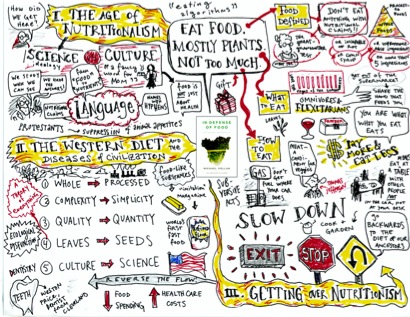Industrial Regulation

The problem with keyword searches? They give you what you've asked for, not what you really needed but were too ignorant to know you needed. That's why libraries catalogue their holdings by subject categories. Some books are general, some more specific. The specific are not classified as subsets of more general classifications. You want a book on blue crabs, ask for blue crabs, not the more general crustaceans. Slip over here for more ...
Where Does All This Nonsense Come From?

(Image of J. Smith, trailblazer)
Within SEI, there were (probably still are) two factions. I heard (just hearsay) that two principals at SEI approached two of the Agile Manifesto signatories to wish them luck shortly after the manifesto was made public. Apparently they had carried the same intentions in founding the SEI, but were compromised when the suits showed up. Slip over here for more ...
Requiem for International Project Managers' Day

News yesterday from a Silicon Valley correspondent reports that PMI meetings there have swelled with attendants. Why? Lots and lots of PMs looking for work. It's been several years since I attended any PM-related conference where the out-of-work PMs and PM consultant wanna-bes didn't greatly outnumber those who were there to share information.
Just yesterday, I reviewed yet another job description claiming to want someone capable of bringing projects in consistently on-time, on-budget, and on-spec. Slip over here for more ...
Rocket Science

Years ago, I wrote the story of an interview with a Chief Financial Officer of a major American corporation. He had underwritten a project that had grown by insignificant increment to threaten his company’s financial standing. He spent most of the session pointing fingers. That damned VP of IT was really to blame. She was an upstart lesbian trying to play with the big boys in the big leagues. That damned Big N consulting firm was to blame. They were booking hundreds of thousands per month and not making any progress. He even blamed his own staff for not performing as he expected.
He finally proclaimed, exasperated, that “this isn’t rocket science!”
Slip over here for more ...The Palouse Insight

For centuries, tribes who’s territories bordered this region of endless rolling, silty loess hills, considered The Palouse to be neutral territory, common grazing land, a place where horses would not be stolen and war would not be waged. War had not been waged until US Army Colonel Edward Steptoe blundered into armed conflict near the present day Steptoe Butte, a jutting rock the natives called “power mountain.” Steptoe got his butt kicked and retreated back to Fort Walla Walla.
Slip over here for more ...Poison Apples

You Suck@Projects

Well, in a week when Wall Street evaporated, when the Feds decided to take on the bad debt burden of the world, a week when the biggest losers managed to slop their mustard all over the rest of us, I was perhaps justified in feeling just a little bit testy.
I dedicate this bit of slam poetry to every executive who never actually worked on projects before deciding they knew just how to direct them: Slip over here for more ...S-L-O-W W-O--R---K

Fighting The Global War Against Taylorism

Back To Off The Grid Again

Jerry Weinberg used to tell a story about one of his daughters who managed to get five Fs and a D one quarter in junior high school. Jerry's ex-wife asked him to speak with his daughter, so he did, asking her how come she didn't get straight Fs. Well, she explained, the D was in Arts and Crafts, and in that class, she gets a D no matter what she does. Well, apply yourself next quarter, he counseled, go for straight Fs.
Slip over here for more ...Start Where They Are!
This is the next installment of the series considering the secular religion of Management-ism.

Who Manages The Manager?
Prior installments:
How We 'Managed' To Screw It Up,
Getting Off The Grid
Off The Grid
Abstractions
Going Organic
Interview With A Management-ist
eXtreme tAylorism
Changed By It
Enablers
 Who manages the managers? A piece in the current New Yorker talks about the Tragedy of the Anti-commons. We are all familiar with the tragedy of the commons, where a free good gets destroyed because it's in every individual user's short term interest to consume more than a sustainable fair share. But I'd not considered the converse, where the ownership of a property necessary for collective work is split up into so many independent shares that cooperation becomes impossible. The common lies unproductively fallow because every owner wants too much in return for cooperation..
Who manages the managers? A piece in the current New Yorker talks about the Tragedy of the Anti-commons. We are all familiar with the tragedy of the commons, where a free good gets destroyed because it's in every individual user's short term interest to consume more than a sustainable fair share. But I'd not considered the converse, where the ownership of a property necessary for collective work is split up into so many independent shares that cooperation becomes impossible. The common lies unproductively fallow because every owner wants too much in return for cooperation..
Sound familiar?
It sure does to me!
Enablers
Prior installments:
How We 'Managed' To Screw It Up,
Getting Off The Grid
Off The Grid
Abstractions
Going Organic
Interview With A Management-ist
eXtreme tAylorism
Changed By It

Parse the language in this posting. Notice what isn't there!
What isn't there? People are missing, replaced, as F. W. Taylor long-ago predicted, by "the system." Who performs these 'operational practices?' Who does this disembodied 'communicating?'
Slip over here for more ...Changed By It

For the last fifteen years, I've been facilitating curious workshops. These never told anyone what they should do, and I've developed a strong aversion to anyone who presumes to know what I should do and when I should do it. Nothing I do involves procedures. Nothing seems suited to steps or checklists. This is an improvement over the years following my graduation from university, when I performed a lot of quantitative analysis on what was in retrospect subjective experiences. I attempted to routinize a lot of work which never as a result exhibited routine. For I was infected with the notion that I should measure and, more dangerously, that only if I measured could I properly manage. The people I was charged with managing were wiser than I was, however, and while some of them chased the measurable manageable metric god, none of us ever caught him. And we succeeded at an acceptable rate, anyway.
Slip over here for more ...eXtreme tAylorism
 wE iNterrupt tHe rEgularly sCheduled bLog eNtry fOr a nEws fLash!
wE iNterrupt tHe rEgularly sCheduled bLog eNtry fOr a nEws fLash!Is Google Making Us Stupid?
Could be. An article in the current Atlantic considers how we acquire information, and the effect of our snippet-seeking culture on our brains and on our society. When was the last time you read a book? When was the last time you lost yourself in thought? Our brains rewire themselves, adapting to the conditions around us. The printing press changed not only how books are produced, but how readers' brains process information. Same story with the computer, it seems.
Have you been reading less and enjoying it more? Do you find yourself feeling bored after ten minutes of reading? Do you ever visit the library anymore?
Slip over here for more ...Interview With A Management-ist

(Note: I am the Management-ist depicted here. I am also the one interviewing (or, in proper management-ist lingo, 'being interviewed by') the management-ist. I have been on both sides of this conference table.)
The chill will crawl up the back of your neck.
The surroundings are comfortable enough: a well-appointed office, a conference room decorated with fine art. The welcome will be genuinely warm. The conversation always starts with small talk—studied small talk, as if I'd been instructed to 'start from the heart' and engage with the 'person' first. Whether this takes the form of sports, the weather, the travel from there to here, or the nearly universal quick apology for being a few minutes late for the meeting, the first five minutes of the interview will be beside the point.
Slip over here for more ...Going Organic

In the last installment, I introduced the character behind management-ism. The 'can't manage what can't be measured' mindset that seeks metrics for measuring everything. Peter Block once asked the question, "If performance appraisals are so good, why don't we perform them on our spouses?" We don't perform them on our spouses because we have better ways to assess the goodness of that relationship. In absence of relationship, though, where we merely inhabit roles and perform process scripts, managing by such metrics might seem to make all the sense in the world. The management-ist sees no contradiction in employing 360 degree feedback strategies. The rest of us certainly do!
Slip over here for more ...Abstractions

Continuing the investigation of the secular religion of Management-ism started
HERE, continued HERE and HERE ...The last installment introduced Dr. Bob Ironside, a General Practitioner who fled the managed care system to start a subscription-based health advocacy clinic, where his clients actively collaborate WITH him to maintain health rather than simply treat illness.
Dan Starr, in his comment on the third installment, noted that the HMO (Health MAINTENANCE Organization) concept originated in just this idea, a physician/client partnership focused positively, to maintain health and so reduce health care costs. It morphed into its opposite, where the object became negative, to reduce health care costs by aggressively "managing" allocation: dictating delivery terms, questioning diagnoses and treatment recommendations, and tightly limiting reimbursements to minimize costs. How maintaining health shifted into minimizing costs might serve as the general pattern defining the difference between the manager and the management-ist. Slip over here for more ...Off The Grid

This posting continues the story started
HERE and continued HERE. This third installment of my investigation of Managementism, the profoundly popular theology influencing everything from food production to health care, looks at one example of one practitioner who choose to step "Off The Grid."In the last installment, I introduced a doctor, Bob Ironside, who, dissatisfied with the management of the health care system he was a part of, took personal agency to make his part work much better. I was sitting in an extremely comfortable room—I would not call it a waiting room, because it was clearly not designed for any activity as wasteful as waiting—for a chat with Bob about his life off the grid.
Slip over here for more ...Getting Off The Grid

This post is the second installment in a series considering Management-ism, which I started here. I first met Bob Ironside in the early eighties. He was then a General Practitioner, working in a typical clinic he shared with a half dozen other docs. The waiting room was large enough to hold twenty or thirty patients. Staff worked behind a counter with a sliding glass window. A receptionist, several nurses, rows of shelves with patient files. The doctors saw patients in small rooms along a central hall, which was closed off from the waiting room by a door, guarded by one or another of the nurses. When a doctor was ready, a patient's name was called out, and the door to the examination rooms opened, and that patient was ushered down the hall.
How We "Managed" To Screw It Up

This entry might turn into a bit of a rant. My question, How did we manage to f@#^ up our age-of-Aquarius opportunity in the world? When I look around, I notice that, not only is my generation worse off than the prior one, it's worse off than the one before that! The next generation seems to be even worse off than mine was. How did we manage to do that? I just finished reading Michael Pollan's In Defense of Food, which continues his commentary, started in The Omnivore's Dilemma, on the sorry state of food production and distribution. He cites the close correlation between the introduction of what he calls Nutritionism and increases in everything from heart disease to attention deficit syndrome. Pollan speaks at length about the curious science of nutrition, which he claims more closely resembles a religion than a disciplined science. Post WWII, food became increasingly replaced by nutrition, typically vitamins and minerals added to a corn starch base and sold in lieu of food. This strategy enables industrial food producers to enjoy huge margins, but it ignored something important about food. Food apparently cannot be successfully separated from its context. We can't just distill a meal into a prescribed set of nutritional elements and expect to thrive. a) We don't yet understand what all the elements are and how they actually relate, and b) We have been misusing science to support the notion that we DO know what we actually do not. (Oh, and successfully lobbying to make this speculation the law of the land.)


